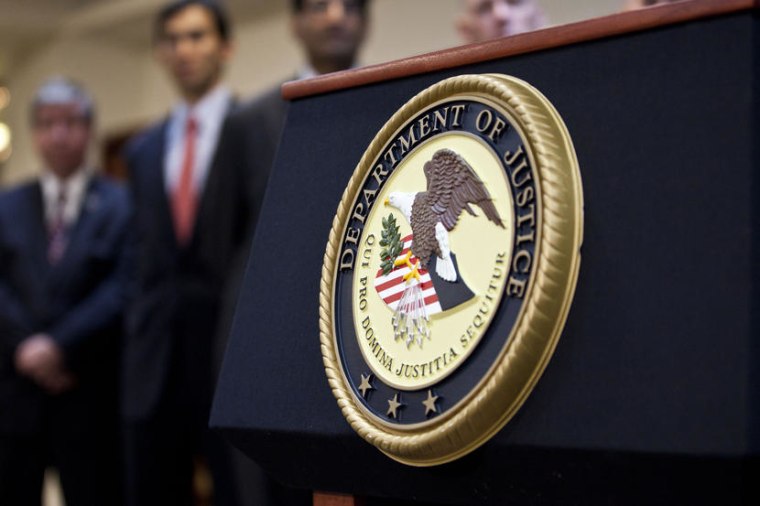At a White House event on Wednesday, a reporter asked Donald Trump whether he asked the Justice Department to intervene on Roger Stone's behalf ahead of his sentencing. The president said he hadn't spoken to the department, but he seemed eager to insist he could have.
"I'd be able to do it if I wanted," Trump said. "I have the absolute right to do it."
In case that was in any way ambiguous, the president went further this morning, insisting he can intervene in criminal cases when he wants to, the day after Attorney General Bill Barr said Trump's tweets about Justice Department matters "make it impossible for me to do my job."
Referring to Barr's interview, in which the attorney general said the president "has never asked me to do anything in a criminal case," Trump tweeted on Friday, "This doesn't mean that I do not have, as President, the legal right to do so, I do, but I have so far chosen not to!"
If my thesis from this morning was correct, the attorney general wants the president to lower the volume on this kind of talk, because it has the effect of bringing attention to Team Trump's misuse of federal law enforcement.
But it appears Trump doesn't much care. It's as if he wants everyone to know about the corruption of the system because it increases the potency of the abuse.
The New York Times had an interesting report yesterday, which noted, "For decades after Watergate, the White House treated the Justice Department with the softest of gloves, fearful that any appearance of political interference would resurrect the specter of Attorney General John Mitchell helping President Richard M. Nixon carry out a criminal conspiracy for political ends."
The article added that Trump's "ground-shaking conduct has demolished those once-sacrosanct guardrails."
That's right, and there's every reason to believe the president wants everyone to know it. By bragging about his professed ability to intervene in criminal cases -- whenever he wants, to any extent he wants -- Trump may very well want his allies to know they'll be protected, while simultaneously signaling to his enemies that they'll be hunted.
Those who feared John Mitchell carrying out Nixonian schemes have effectively been told their concerns have come to life -- and a half-century later, there are no longer Republicans on Capitol Hill prepared to tell their president, "No."
A New York Times editorial noted this week, "The Constitution compels the president, among other things, to 'take care that the laws be faithfully executed.' Since Mr. Trump has described that document as 'like a foreign language,' we'll take this opportunity to inform him that this clause does not give him the authority to run the Justice Department like a goon squad at one of his failed casinos."
That's true, though it's also true that the president may not know or care. In fact, Trump appears to have convinced himself of the opposite, arguing as far back as late 2017, "I have absolute right to do what I want to do with the Justice Department."
And in the wake of his impeachment trial, in which the president was acquitted by GOP senators who acknowledged his guilt, isn't it likely Trump is asking himself, "Who's going to stop me?"

